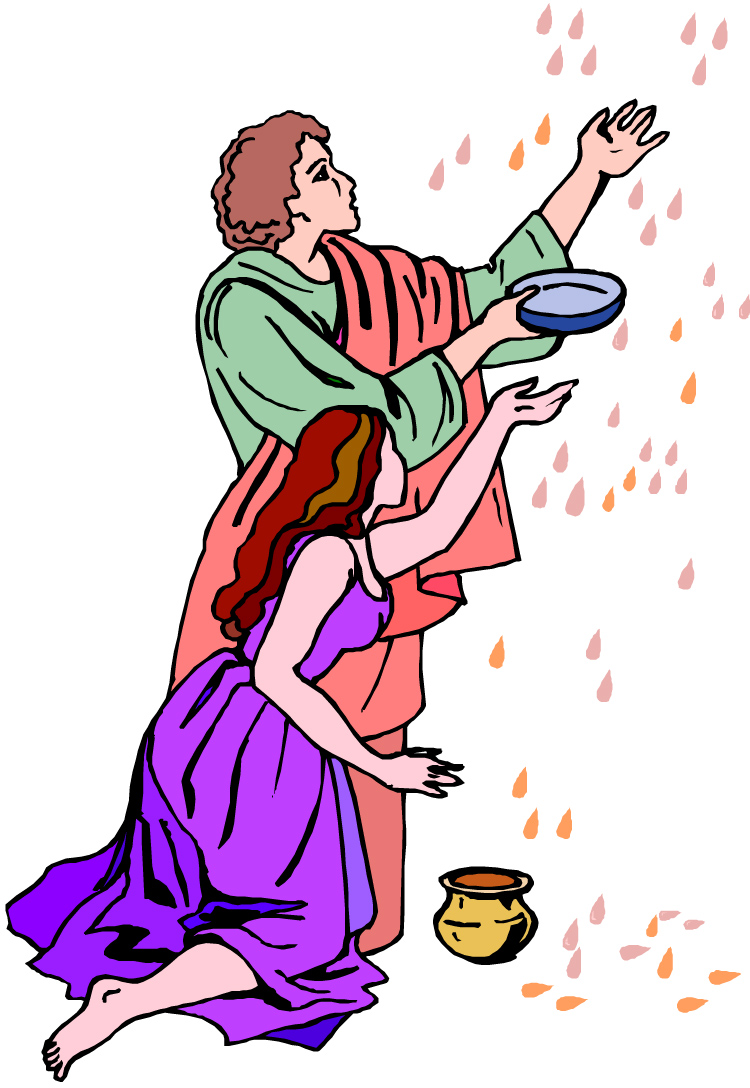Exodus 16:4–30, The Sabbath. This chapter chronicles YHVH’s efforts to literally force an irreverent, unruly and disobedient nation to keep the seventh day Sabbath. He did so in a most poignant way—through food and hunger. It’s as if he were instructing the stiff-necked and rebellious Israelites that if they refused to follow his Sabbath instructions, they would literally go hungry. “If you don’t obey me, you don’t eat.” This shows the gravity the Creator places on the Sabbath command. Yet despite these clear instructions, most in the Babylonian church today, like the rebellious children of Israel of old, refuse to obey YHVH’s clear instructions regarding the Sabbath. Instead, they prefer to believe the doctrines of men proffered to them by their spiritual leaders that purport to invalidate the Sabbath command. Paul’s sage observation in Romans 8:7 describes the situation perfectly: “Because the carnal mind is enmity against Elohim: for it is not subject to the [Torah] law of Elohim, neither indeed can be.” In our day, the same question can still be asked of followers of Yeshua that YHVH asked of the Israelites at that time, “How long do you refuse to keep my commandments and my laws?” (Exod 16:28).
Not only this, but by forcing the Israelites to gather manna each day, he was teaching them to work six days for their daily bread. Though the bread came from heaven—YHVH’s was its source—he still required the people to work each day by going out and gathering it. There is no free lunch even where YHVH is concerned. The nation of Israel wasn’t a welfare state empowering lazy freeloaders! If a man doesn’t work, he doesn’t eat.
The Sabbath command in Exodus 20 not only prescribes resting on the Sabbath, but this presupposes that one has followed the preceding command to work the previous six days. Humans are naturally inclined to laziness. If one doesn’t have to work, they won’t. YHVH works maintaining and sustaining the universe. YHVH who created humans in his image expects us to follow his example of working and then resting.
Moreover, this chapter is almost entirely dedicated to instructions pertaining to preparing for the Sabbath. This shows the priority that YHVH places on Sabbath observance for his people. Also note that these instructions are given many weeks before the official giving of the Torah (or law of Moses) at Mount Sinai. This is but one of the many examples of YHVH revealing key aspects of his Torah-law before he gave it the Israelites in one legal codified corpus at Mount Sinai.



Natan, how would you succinctly clarify the distinction between the “work” of the six days and the “rest” of the seventh day. If taken literally, this passage might mean that “work” would be any torah permitted activity that enables us to gather natural food to eat and
“rest” would be any other torah permitted activity not having to do with that which enables us to gather natural food to eat. I’m assuming that is an overly simplistic and inaccurate distinction.
I discuss the nature and biblical definition of work in my article on the Sabbath at
. The Torah defines the scope and nature of work. Succinctly, work is creative activity as YHVH made things on the first six days of creation. It also involves physical labor which is laborious. It also involves doing anything that takes our focus off Elohim, which the Bible defines as doing our own pleasure as opposed to finding pleasure in Elohim directly or indirectly. Beyond this, I have addressed these issues not only in my written teachings on the Sabbath, but in a number of videos that I have made, which can be found on my YouTube channel. I direct your attention to these other sources, since I lack the time or energy to keep answering these basic questions over and over again, as important as they may be. That’s why I have put the videos and teachings out there. Also, if you go to the search button on this blog’s front page and type in Sabbath or Shabbat, you will find articles and videos that answer this question. Blessings!
I’m very familiar with all your resources. I only asked for a succinct clarification and your first three and a half sentences was a just that. Thank you very much.
Glad I hit the target.
OMG! I was going to write that the 7th day is ABBA day when I realized Abba is right in the middle of the word “sABBAth!!!!!! Never saw that before today…thanks Natan for this study. and ShABBAt Shalom..and Who is our Peace?!
Another three point shot with the wordplay!
Nice Carol
our Avinu is in the midst, hidden in plain sight just awaiting the time to reveal glimpses as we seek. How precious every place He allows each seeker to find Him anew. Refreshing along the way. The pools of water. Take care and Praise our Deliver. The King over all Creation. FJ
enjoyed Carol’s 3 sentences re the word ABBA in SABBATH….amazing…it is also interesting that my youngest son’s history book for year 10 which was back in 2013 …was giving the history of the 40 hr working week which we are all basically used to and it showed pictures going back I think to the 1800’s settlement in Aust. & it actually said the 40 hr week was deemed by The Freemasons…of course that is in the foundation of many nations on the earth. ….then we have the so called working week for most: Monday to Friday with 2 days off for rest & relaxation….( the weekend) ..unless some in the essential services…paramedics Dr’s Nurses etc police & others who work shift work & weekends..how things have changed. One can see how difficult it can be for the secular world to accept a Saviour (Yeshua) who kept the Sabbath as commanded by the Father & why it is such a battle & controversy today.